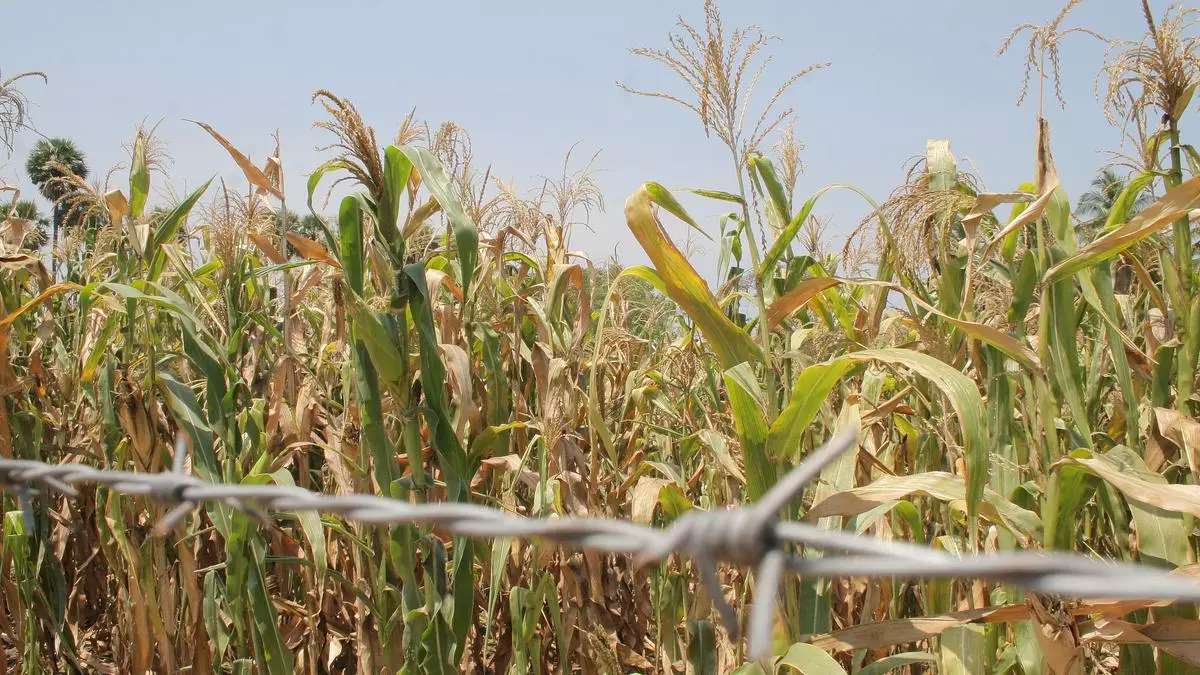India mulling to allow GM corn imports at lower duty to bridge supply deficit
The Indian government is considering allowing the import of genetically modified (GM) corn (maize) at a lower import duty if not at zero duty to bridge the supply deficit owing to rising consumption in the country, said two sources in the know of the development. “There are a few issues to sort out, including how to handle the import of a genetically-engineered crop. There are cases against GMO imports in some courts. In addition, the cost analysis has to be worked out,” said a first source.
- Also read: India’s maize exports in FY24 drop to 4-year low at 14.42 lakh tonnes on higher domestic prices
“Consultations are on at a higher level and some of the authorities have been asked to look into the issue, particularly about the import of GM crops. Serious consideration is being given to the issue to ensure all safeguards are in place,” said a second source.
Poultry sector favours move
A section of the poultry industry, which is strongly batting for the import of GM corn, says the Centre should consider the shipments, at least, to meet the demand for ethanol production.
The sector has dismissed concerns over the import of GM corn, pointing out that India already permitted the import of chicken from the US. These birds are fed GM maize and soyabean. In 2021-22, the government relaxed its rules to allow the import of 1.2 million tonnes (mt) of GM soymeal to support the domestic poultry industry after a record spike in feed prices, the industry argues.
Surging demand for maize has pushed up prices to ₹2,400 a quintal at the user level currently. The government is concerned over this, in particular. It is looking at this option to ensure adequate supplies and keep prices under control. Currently, corn is in demand from the poultry, ethanol manufacturing, and starch industries. During the current crop year ending June 30, corn production has been estimated at 22.72 mt during the kharif season and 9.75 mt in the rabi season.
Last crop year, the production was estimated at 23.67 mt during the kharif season, 11.69 mt in the rabi season and 2.7 mt in the zaid or summer crop season, totalling a record 38.09 mt. This year’s summer crops estimate has not been released yet. In 2023-24, the ethanol sector used 0.8 mt of corn and this is expected to increase to 3.4 mt this fiscal before rising to 10 mt by 2027-28.
Cheaper option
The poultry sector utilised 16 mt of corn last fiscal year and will likely consume an additional 1 mt this fiscal year. The feed sector has been lobbying hard to permit the import of GM corn as it is available globally at a relatively cheaper cost.
Currently, the weighted average price of maize across agricultural produce marketing committee (APMC) yards in the country is ₹2,124 a quintal. But in some of the APMCs in Madhya Pradesh and Karnataka, they are ruling higher at around ₹2,700. During the same time last year, its prices were ₹1,785.
On the Chicago Board of Trade, corn July contracts are quoting at $4.51 a bushel ($177.59 or ₹14,825/tonne). Currently, the government imposes a 60 per cent Customs duty on corn imports besides a 5 per cent IGST and 10 per cent social welfare surcharge. But it allows tariff rate quota (TRQ) imports at 15 per cent concessional duty. In 2020, it allowed imports of 5 lt of corn under TRQ.
Sources said it would be a win-win situation for farmers, especially those who grow sugarcane, user industries, including sugarcane firms, and exporters if corn is imported at zero duty. If corn is imported, sugarcane can be used more for producing sugar, which can be exported too unlike in 2023 and 2024 when the government curbed its exports.
This will also ensure that industries get their raw materials without any problems. Again, sugar companies will not face the problem they underwent this year with the Centre curbing exports and use of sugarcane juice for ethanol production. Exporters can, on the other hand, enter into contracts without worrying about curbs.
CII vision paper
On the other hand, the Centre has come up with a scheme guaranteeing minimum support price (MSP) for corn growers who enter into contracts to supply their produce to ethanol manufacturing firms.
Imports will aid the poultry and starch sectors, which are currently facing problems in getting supplies and rising input costs. Since 2023, the poultry sector, which depends on corn for feed requirements, has been urging the Union Government to allow the import of GM corn. It has also requested that the government introduce high-yielding GM corn to increase productivity.
The poultry sector is keen on imports since feed prices make up about 65 per cent of the meat production costs. In its Vision Document 2047 for the Indian poultry sector, the Confederation of Indian Industry, pitching for GM corn and soyabean imports, said, “The current growth level of maize and soybean production will be insufficient to meet the demand of the poultry industry.”
